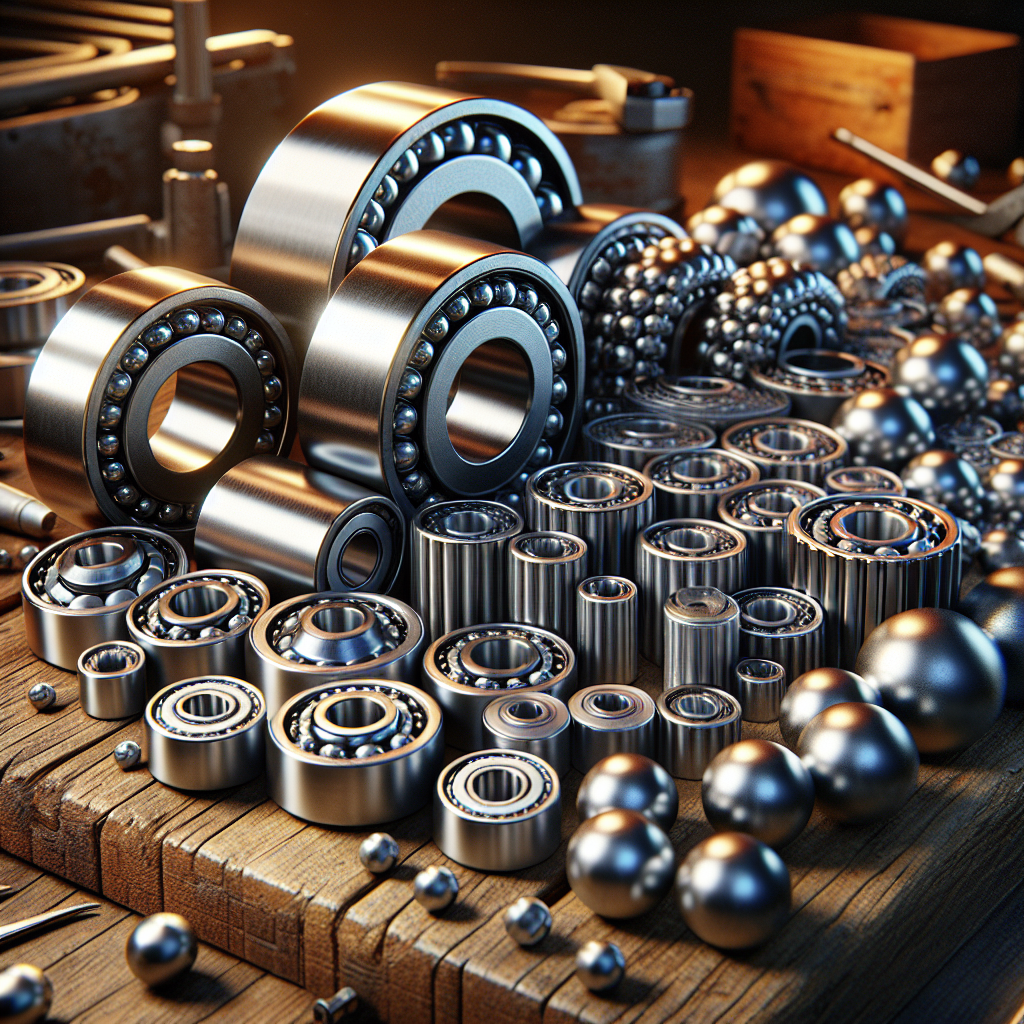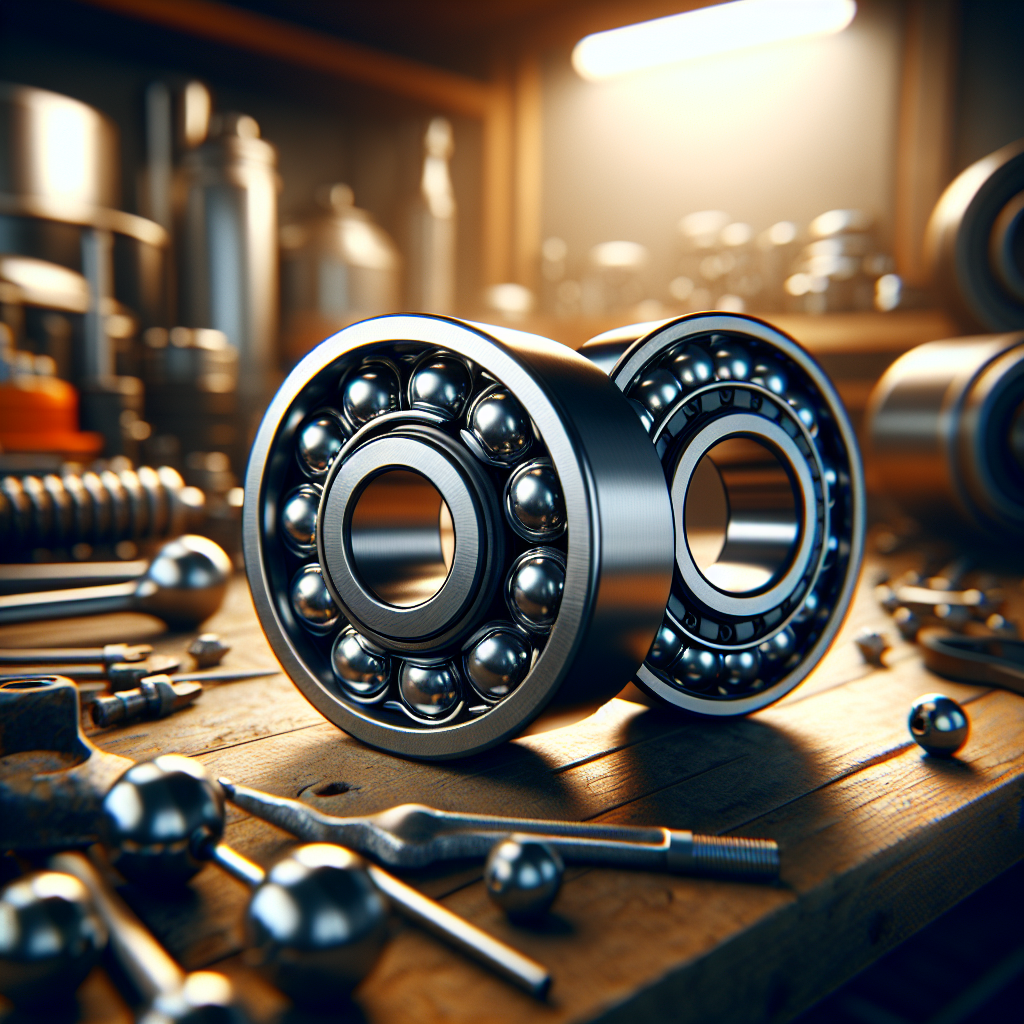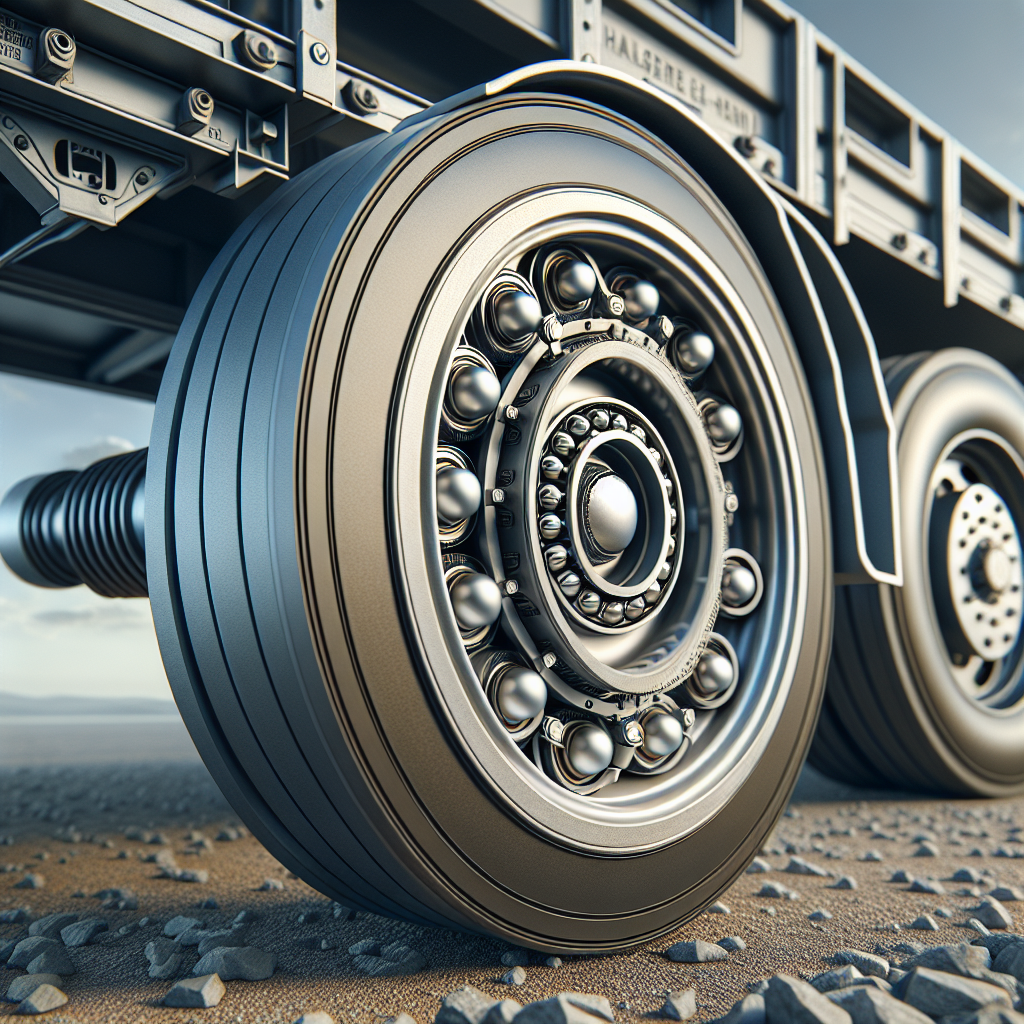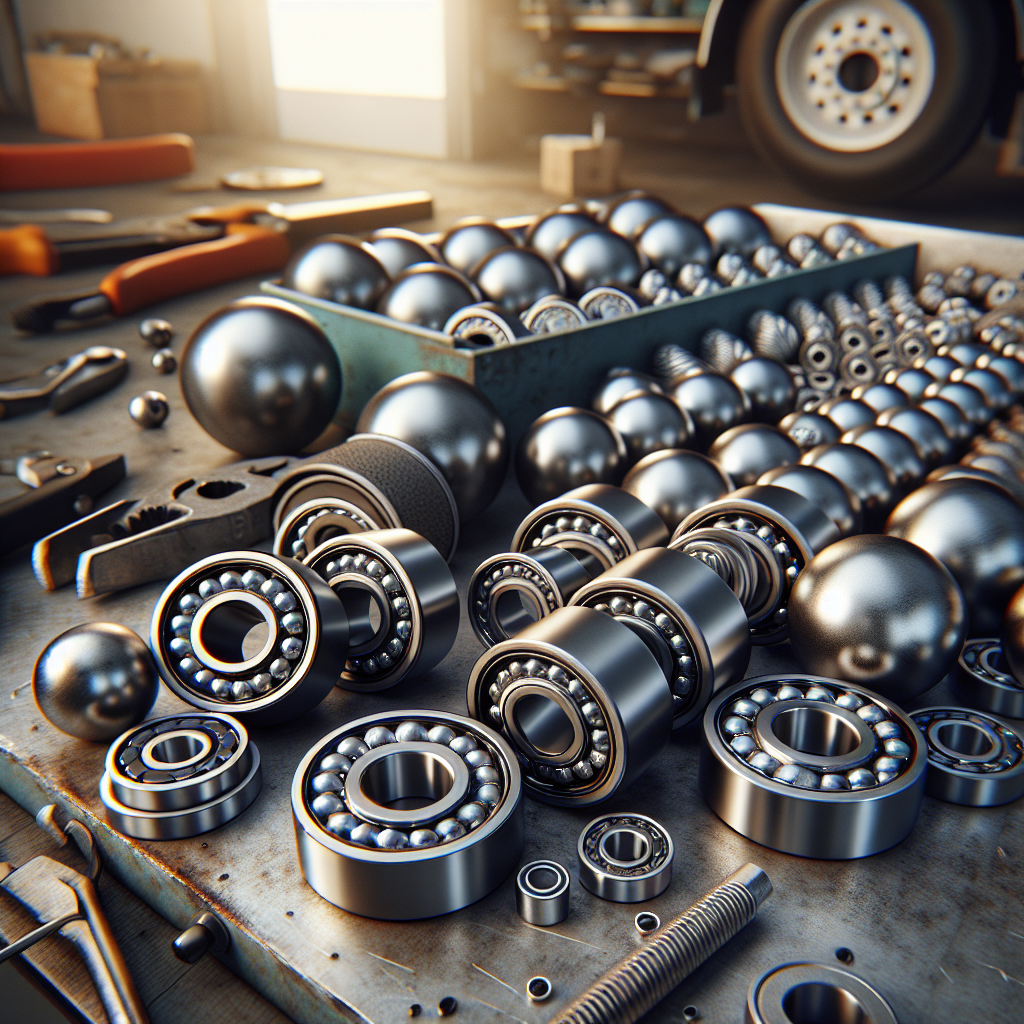Trailer bearings play a crucial role in ensuring a smoother and safer ride for your trailer. They are essential components that facilitate the rotation of the trailer wheels, allowing for efficient motion and weight distribution. Understanding how trailer bearings work can help you maintain your trailer effectively and prevent potential issues on the road.
At the core of trailer bearings are two main types: roller bearings and ball bearings. Roller bearings use cylindrical rollers to handle radial loads, while ball bearings employ spherical balls. Both types are designed to minimize friction, which is critical for the smooth rotation of the wheels. Here’s a brief overview of their functionality:
- Load Distribution: Bearings help distribute the weight of the trailer evenly across the wheels, preventing uneven wear and tear.
- Friction Reduction: By minimizing friction between moving parts, bearings reduce heat generation, enhancing the lifespan of the wheels and axle.
- Stability: Properly functioning bearings maintain wheel alignment, which is vital for safe towing and maneuverability.
Regular inspection and maintenance of trailer bearings are crucial. This includes checking for wear and tear, ensuring proper lubrication, and replacing any damaged components. Implementing a monitoring system can provide real-time data on the condition of your trailer's bearings, helping you to catch issues before they escalate.
Tow with peace of mind, knowing that trailerwatchdog is standing guard.
Key Components of Trailer Bearings Explained

To fully grasp how trailer bearings work, it's essential to understand their key components. Each part plays a specific role in ensuring the efficient operation of the bearing system, providing stability and performance for your trailer.
The main components of trailer bearings include:
- Outer Race: The outer race is the circular casing that houses the bearing components. It provides the structural integrity needed to support the inner workings.
- Inner Race: This is the inner component of the bearing that sits on the axle. It allows the rollers or balls to rotate smoothly while maintaining a tight fit.
- Rolling Elements: These can either be balls or rollers, depending on the type of bearing. They are the critical components that roll between the inner and outer races, enabling rotational movement with minimal friction.
- Seals: Seals are crucial for keeping dirt and debris out of the bearing assembly. They help retain the lubricant, ensuring that the rolling elements operate smoothly.
- Lubrication: Proper lubrication is vital for reducing friction and wear. It can come in the form of grease or oil, which is applied to the rolling elements and races to ensure efficient performance.
Understanding these components helps in recognizing the importance of regular maintenance. Keeping the bearings properly lubricated and ensuring the seals are intact can significantly prolong their lifespan and enhance your trailer's performance.
How to Maintain Trailer Bearings for Longevity

To ensure your trailer operates smoothly and efficiently, it is crucial to know how to maintain trailer bearings for longevity. Regular maintenance not only extends the life of the bearings but also enhances the overall safety of your trailer. Here are some essential maintenance tips:
- Routine Inspections: Regularly inspect your trailer bearings for signs of wear, such as rust, discoloration, or damage. Catching these issues early can prevent catastrophic failures.
- Check for Play: Gently shake the wheel to check for excessive play or movement. Any noticeable wobbling can indicate that the bearings are wearing out and need immediate attention.
- Lubrication: Keep your bearings well-lubricated. Depending on the type of bearings, use the appropriate grease or oil. Follow the manufacturer’s recommendations on lubrication intervals to ensure optimal performance.
- Seal Integrity: Inspect the seals for any cracks or damage. Properly functioning seals are essential for keeping dirt and moisture out, which can significantly impact the lifespan of your bearings.
- Heat Monitoring: Consider investing in a heat monitoring system. Excessive heat can be a sign of bearing failure, and by monitoring axle temperatures, you can address issues before they lead to more significant problems.
By following these maintenance tips, you can ensure that your trailer bearings remain in excellent condition, providing you with a safe and smooth towing experience.
Signs of Worn or Damaged Trailer Bearings

Identifying the signs of worn or damaged trailer bearings is essential for preventing potential accidents and ensuring the longevity of your trailer. Being vigilant about these signs can save you from costly repairs and enhance your safety on the road. Here are some key indicators to watch for:
- Unusual Noises: One of the first signs of bearing issues is a grinding, humming, or rumbling noise coming from the wheel area. These sounds often indicate that the bearings are failing and need immediate inspection.
- Excessive Heat: If you notice that the wheel hub feels unusually hot to the touch after a drive, it could be a sign that the bearings are not functioning properly. Overheating can lead to further damage if not addressed promptly.
- Vibration: A noticeable increase in vibration while towing can signal that the bearings are worn or damaged. If the vibrations seem excessive, it’s crucial to investigate further to avoid any potential failure.
- Grease Leakage: Look for signs of grease leaking from the wheel hub. This leakage can indicate that the seals are damaged and that dirt and moisture may have entered, which can compromise bearing integrity.
- Wheel Play: If you can shake the wheel side-to-side or up-and-down when the trailer is lifted, it’s a clear sign that the bearings are worn out and need replacement.
Being aware of these signs will help you take proactive measures to maintain your trailer, ensuring safer travels and preventing unexpected breakdowns.
Upgrading to Advanced Trailer Bearing Technology
Upgrading to advanced trailer bearing technology can significantly enhance the performance and safety of your trailer. With the advent of modern materials and engineering techniques, today's trailer bearings offer several advantages over traditional options. Here are some key benefits of making the upgrade:
- Improved Durability: Advanced trailer bearings are designed using high-quality materials that withstand extreme conditions. This durability means longer service life, reducing the frequency of replacements and maintenance.
- Enhanced Load Capacity: Newer bearing designs often feature improved load capacity, allowing them to handle heavier loads without compromising performance. This is particularly beneficial for commercial trailers that transport significant weight.
- Reduced Friction: Modern bearings employ advanced lubrication technologies that minimize friction, leading to smoother operation and less heat generation. This not only improves performance but also contributes to fuel efficiency.
- Sealing Technology: Upgraded bearings often come with superior sealing systems that protect against contaminants such as dirt, water, and debris. This protection extends the lifespan of the bearings and enhances overall safety.
- Smart Technology Integration: Some advanced bearings are designed to integrate with smart monitoring systems. These systems can provide real-time data on bearing performance, helping you identify potential issues before they lead to failure.
By investing in advanced trailer bearing technology, you’re not just upgrading a component; you're enhancing the overall reliability and safety of your trailer. This proactive approach can lead to a significant reduction in maintenance costs and unexpected breakdowns, allowing for smoother and safer journeys.
The Importance of Trailer Bearings for Safe Travels

Understanding the importance of trailer bearings is crucial for ensuring safe travels on the road. These components play a vital role in the overall functioning of your trailer, making their condition paramount for both performance and safety. Here's why trailer bearings should never be overlooked:
- Load Distribution: Bearings help distribute the weight of the trailer evenly, which is essential for maintaining balance and stability while towing. Proper load distribution prevents excessive strain on any single component, reducing the risk of catastrophic failures.
- Heat Management: As trailers travel, their bearings generate heat due to friction. High-quality bearings are designed to manage this heat effectively, preventing overheating that can lead to damage or failure. Regular checks can prevent overheating issues.
- Safety Features: Well-maintained bearings significantly reduce the risk of wheel detachment or trailer sway, both of which can lead to dangerous situations on the road. Ensuring that your bearings are in good condition is a vital safety measure.
- Maintenance Alerts: Integrating smart monitoring systems with your trailer's bearings can provide real-time alerts on their condition. This proactive monitoring helps catch potential issues before they escalate, ensuring that your trailer is always road-ready.
With the right maintenance and monitoring, you can ensure that your trailer bearings operate effectively, contributing to a safer towing experience. Tow with peace of mind, knowing that TrailerWatchdog is standing guard. For more information on how to protect your trailer and enhance its performance, visit trailerwatchdog.com.








